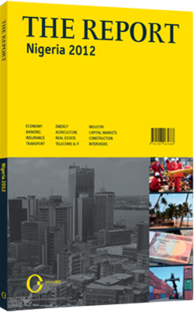OBG talks to Wale Agbeyangi, Managing Director, Cordros Capital

Interview: Wale Agbeyangi
How can the strong performance of fixed-income assets encourage a viable retail trading platform?
WALE AGBEYANGI: With investors demanding more fixed-income securities, new platforms have to be created to take advantage of increasing demand. As inflation continues to stay in the double digits the search for positive real returns should mean a sustained rise in fixed-income market activity. For instance, the launch of a range of fixed-income products, including corporate bonds, government bonds and repos will spur activity in fixed-income securities.
I also believe a regulatory push will encourage a retail trading platform. The Nigerian Stock Exchange has renewed its efforts to develop a viable platform for fixed-income securities before the end of 2012.
Lastly, it can be done through pricing, transparency and market access. It should be noted that the rise of fixed-income securities has served to improve the access to fixed-income markets and we expect that as the market matures, the demand for objective pricing, transparency and market access can only be guaranteed through retail trading platforms.
What is your outlook for the medium-term performance of equity investments?
AGBEYANGI: The medium-term outlook for equity investment is bullish. This is premised on a number of factors. First of all, company fundamentals remain a key growth driver; those with strong book size, stable earnings growth, acceptable returns and tolerable volatility will be the darlings of investors. They distinguish themselves through strong balance sheets with little or no leverage and sufficient liquidity reserves. Their earnings prospects are more predictable whilst creating good dividends for equity investors. The attractive valuations in the market are also key growth drivers, as many counters offer significant discounts to their intrinsic values with less downside risk.
Then, with disclosures becoming the new valuation benchmark, we expect the adoption of international financial reporting standards to engender better disclosure and thereby boost investors’ confidence.
Finally, the planned import substitution strategies of the government will lead to local production, generating employment opportunities and better retaining investable funds within the local market.
What are the biggest obstacles to getting eligible small and medium-sized enterprises (SMEs) to list?
AGBEYANGI: Most SMEs in Nigeria are not yet structured to meet listing requirements. For example, financial disclosure requirements and reporting standards applicable to listing are seen by most SMEs as difficult and costly to fulfil. Another obstacle to SME listing is the general aversion to disclosure. For instance, public disclosure will inform the tax authorities on profits and tax liabilities. In addition, the lack of an SME capital market framework is a major hindrance to listing.
There is the need for a transparent, well regulated and credible system for SME listing. Perhaps the biggest obstacle to SME listing is ownership dilution. There is a general concern about the dilution of ownership and the character of potential shareholders.
How is the government responding to calls to make up for losses incurred during the global crisis?
AGBEYANGI: The subject of forbearance stimulus to stockbrokers has been a very contentious one. Operators in the market agreed that there is the need to package some sort of relief to brokers for losses sustained during the downturn.
This is aimed at addressing the liquidity problem, as well as preventing the recurrence of actions that led to stockbrokers’ high level of indebtedness to banks.
The estimated outstanding debt from margin loans incurred by stockbrokers stands at about N300bn ($1.92bn). Stakeholders in the capital market have insisted that forbearance remains the only financial instrument needed to re-stimulate participation and provide some form of liquidity for the capital market.
You have reached the limit of premium articles you can view for free.
Choose from the options below to purchase print or digital editions of our Reports. You can also purchase a website subscription giving you unlimited access to all of our Reports online for 12 months.
If you have already purchased this Report or have a website subscription, please login to continue.

